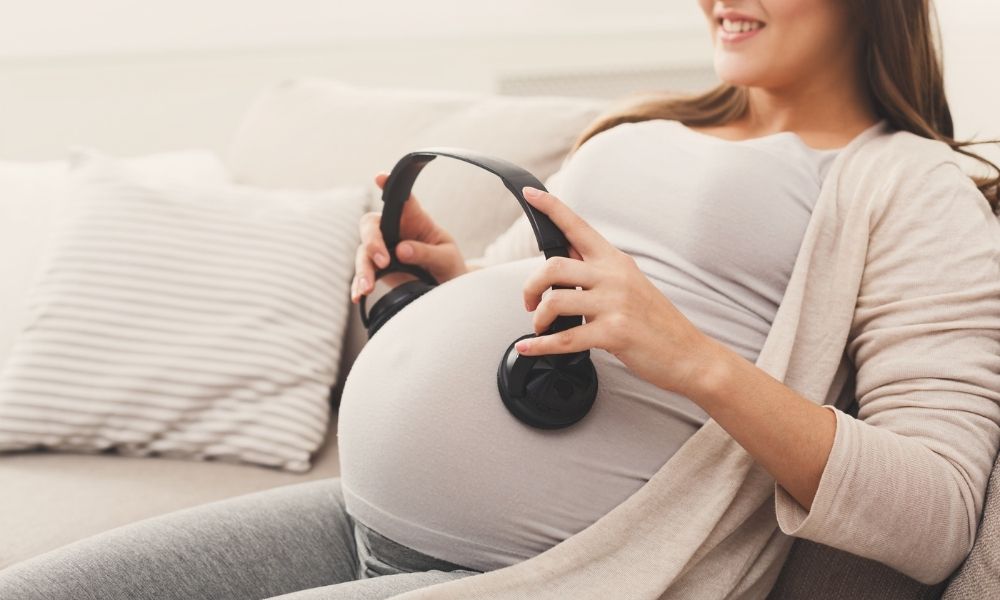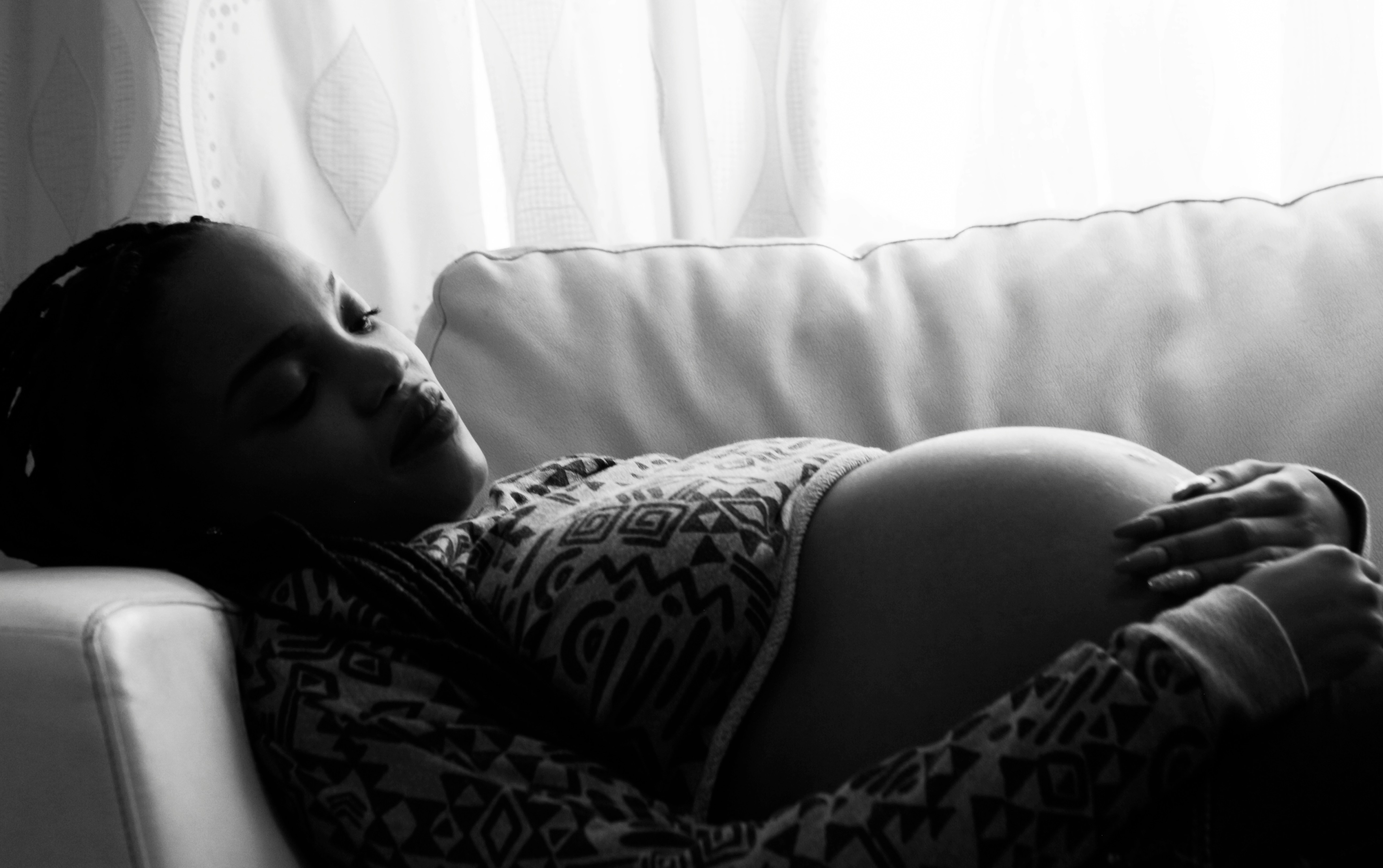The good news is that there are some useful aids to help a better night’s sleep which should hopefully alleviate some of the problems. Let’s start with the ‘correct’ sleeping position.
Sleeping Positions
Pre bump, what was your favourite sleeping position? On your back, like a starfish, on your left, on your right or flat on your tummy like you’ve been dropped from space?
As you begin to grow you might find it increasingly uncomfortable at night trying to get into your pre-pregnancy favourite sleeping position. If you used to sleep on your side then you are lucky as this is the safest sleeping position when you have a growing bump.
- Sleeping on your tummy
If this was your favourite position, that is fine during the first trimester but as your baby grows you will have to change position as it becomes safer for your baby.
- Sleeping on your back
Unfortunately for those that favour this position, research suggests that during the second and third trimester you should avoid sleeping on your back and that after 28 weeks going to sleep on your back can increase the risk of stillbirth (Tommy’s 2022). This is because your growing bump adds pressure and weight to your back and the main vein which carries blood back from the lower body to the heart. The reduced circulation can also affect the amount of blood flowing to the foetus. Don’t worry if you accidentally roll onto your back in the night though, many of us change positions in the night which we have no control over. If you wake up finding yourself lying on your back, just move into another position. According to Tommy’s, the position we go to sleep in is the one we spend most of the time in during the night.
- Sleeping on your side
Sleeping on your side during the second and third trimester is the best position for you and bump. Studies suggest sleeping on your left allows for maximum blood flow and nutrients to the placenta with little pressure on that main vein carrying blood from the lower part of the body. It also enhances your kidney function which will mean better elimination of waste products and as a result, reduce the swellings you might have in your feet and ankles.
This YouTube clip from Tommy’s in conjunction with the NHS shows how to sleep safely during pregnancy as part of their #SleepOnSide campaign :
https://www.youtube.com/watch?v=TxwBvq7K3Jg
Tips on how to sleep comfortably & safely…
- Pillows - a pillow behind your back will help support you on your side and perhaps help prevent you from falling back onto your back. You might decide that one between your legs helps aid a comfy sleep - Healthcare Professionals often recommend for pregnant women to sleep on their left side with a pillow between their legs, as this is shown to help align the pubic bone and alleviate pressure. A specially designed pregnancy pillow such as the dreamgenii does a great job of supporting you physically, aids sleep & postnatally can be used as a feeding pillow.
- Fresh air and Exercise - getting plenty of fresh air and some moderate exercise during the day is likely to aid a better night of sleep by the time your head hits the pillow.
- Relaxation - whether it be breathing techniques, mindfulness or yoga, practising some relaxation techniques is proven to help to reduce anxiety and improve sleep.
- Heartburn - unfortunately one of the unwanted side effects of pregnancy can be heartburn. This is caused by hormonal changes in your body causing the valve between your stomach and the tube leading to it to relax (NHS 2022). The relaxation of this tube can create a burning / pain in the chest, occurring most frequently after eating. According to WebMD more than half of pregnant women get serious heartburn, so this is something many mums will experience. The best preventions are; Eating small meals, more frequently & slowly, avoiding spicy, or rich foods, and to drink less whilst eating. Heartburn can feel worse when going to bed, so it might help to raise yourself up on some pillows and try to avoid spicy foods and large meals near bedtime. If you really struggle with heartburn at night or indeed at anytime, speak to your GP or midwife about remedies that are safe to take during pregnancy.
- Avoid caffeine - the BMJ latest guidelines (2022) are that all caffeine should be avoided during pregnancy. There is a plus side for those coffee and tea lovers - which is it should help aid a better night sleep! As a substitute there are plenty of herbal pregnancy teas, full of natural ingredients and some of which are specially formulated to help relaxation at bedtime.
- Reduce screen time - research suggests that using devices up until bedtime can affect sleep. Avoiding these up to one hour before bed and starting to dim the lights will allow you to create a calm atmosphere in preparation for nighttime.
- Wear loose clothing - those hormones are causing more havoc, this time increasing blood flow to the skin and making you feel warmer. You are likely to sweat more at night and so it is best to wear natural fibre nightwear and avoid anything synthetic.
- Stay cool / warm! - when pregnant, temperature regulation is not easy! Keeping the window open to cool the room will help.
- The right mattress - it is really important to pick a mattress which is right for your needs. Now more than ever you need a supportive mattress which suits your body to help getting to sleep that little bit easier. There are plenty of different mattresses to choose from on the market - open coil, anti-allergy, cashmere, orthopaedic, bamboo… It might seem overwhelming but it is worth adding a new mattress to your shopping list and researching the best one for you.
It can be tough, lack of sleep is torture, but we really hope that this info helps you …
Sources:
Tommy’s Sleep position in pregnancy Q&A : https://www.tommys.org/pregnancy-information/im-pregnant/sleep-side/sleep-position-pregnancy-qa
Heazell AEP, Li M, Budd J, Thompson JMD, Stacey T, Cronin RS, Martin B, Roberts D, Mitchell EA, McCowan LME. Association between maternal sleep practices and late stillbirth – findings from a stillbirth case-control study. BJOG2017; https://doi.org/10.1111/1471-0528.14967.
ScienceDirect The effects of relaxation exercises on sleep quality in pregnant women in the third trimester (2018) : https://www.sciencedirect.com/science/article/abs/pii/S174438811830286X
NHS Foods to Avoid in Pregnancy (2020) : https://www.nhs.uk/pregnancy/keeping-well/foods-to-avoid/
NHS Exercise in Pregnancy (2020) : https://www.nhs.uk/pregnancy/keeping-well/exercise/
NHS Indigestion and Heartburn in Pregnancy (2020) : https://www.nhs.uk/pregnancy/related-conditions/common-symptoms/indigestion-and-heartburn/
Tommy’s How can I get more sleep in pregnancy (2018) : https://www.tommys.org/pregnancy-information/im-pregnant/ask-a-midwife/how-can-i-get-more-sleep-pregnancy
Tommy’s Yoga in pregnancy (2018) : https://www.tommys.org/pregnancy-information/im-pregnant/exercise-in-pregnancy/yoga-pregnancy
All information we provide is for educational and awareness purposes only. Any concerns should be discussed with your GP, Midwife or Healthcare Professional.
If you’re trying to conceive (TTC), you probably know that there are certain foods and nutrients that become especially important once you’re pregnant. But nutrition plays a vital role even when trying to conceive, much like laying a strong foundation before constructing a house.
Certain nutrients create that foundation by supporting egg and sperm health (yes, nutrition matters for both partners), hormone balance and creating a hospitable environment for a fertilized egg to implant. In fact, studies show that certain nutrients can help increase fertility and improve success rates for both natural conception and fertility treatments.
In other words, nutrition is a key player in the TTC journey, but getting the right nutrients in the right quantities can be tricky. That’s where supplements come in. Just as you’d take a multivitamin to fill in nutritional gaps for optimal health, fertility supplements can give you that extra nutrient boost.
Choosing supplements for your fertility journey
When choosing a supplement to support your fertility journey, look for science-backed, high-quality ingredients. Our editors are careful to select and partner with brands that use ingredients that have been clinically studied to support fertility. Eu Natural® (pronounced you) covers all those bases and more. We love knowing that Eu Natural® products contain zero artificial additives, binders, or fillers and are lab-tested to ensure purity and potency.

When choosing a supplement to support your fertility journey, look for science-backed, high-quality ingredients. Our editors are careful to select and partner with brands that use ingredients that have been clinically studied to support fertility. Eu Natural® (pronounced you) covers all those bases and more. We love knowing that Eu Natural® products contain zero artificial additives, binders, or fillers and are lab-tested to ensure purity and potency.




.jpg)

.png)
.jpg)

%20copy.jpg)


